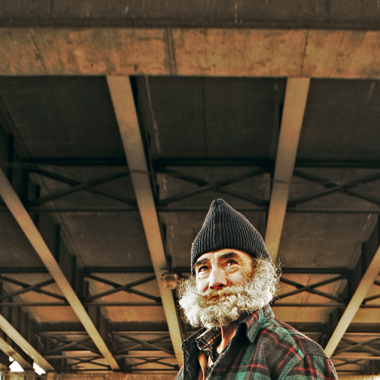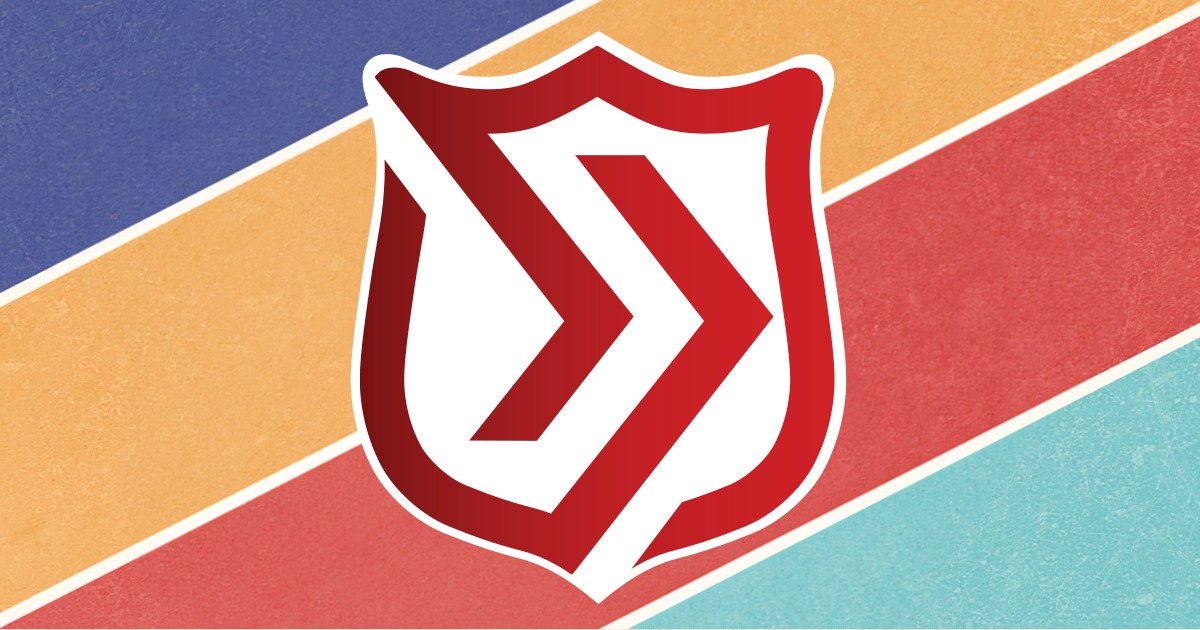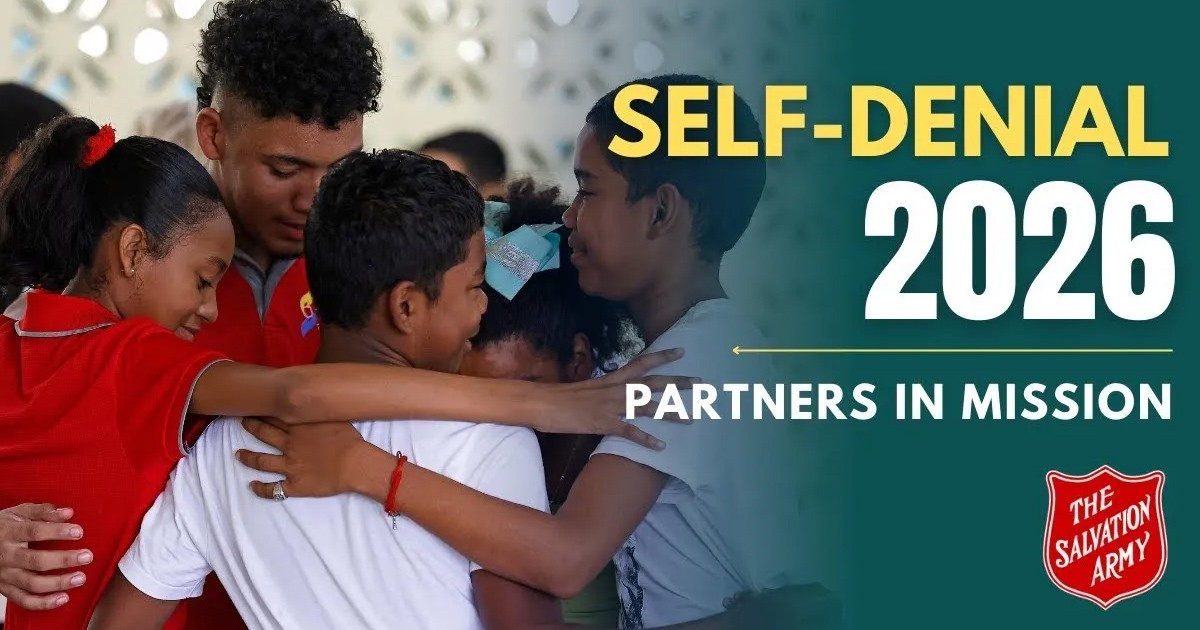
 In this Talking It Over series, Dr. James Read, Executive Director of The Salvation Army Ethics Centre in Winnipeg, and Captain Amy Reardon, Editor of Young Salvationist, U.S.A. National Headquarters, dialogue about moral and ethical issues. Click here to read more debates in the Talking It Over series.
In this Talking It Over series, Dr. James Read, Executive Director of The Salvation Army Ethics Centre in Winnipeg, and Captain Amy Reardon, Editor of Young Salvationist, U.S.A. National Headquarters, dialogue about moral and ethical issues. Click here to read more debates in the Talking It Over series.
Dear Jim,
A recent Globe and Mail article made me aware of a debate in British Columbia concerning the homeless. The province is considering making it mandatory for people without housing to stay in shelters, such as those offered by The Salvation Army, on cold nights. Through the article, I learned about a power the people of Canada have extended to the government—something called parens patriae, meaning “parent of the nation.” As an outsider, I find that phrase truly enlightening. I guess it is understood in Canada that if one cannot care for himself, the government will care for him.
 The concern is that some homeless people are afflicted with mental illness. Not only are they incapable of holding down jobs and maintaining homes, they are not of sound enough mind to seek shelter when they need it. For whatever reason, they would rather be outside.
The concern is that some homeless people are afflicted with mental illness. Not only are they incapable of holding down jobs and maintaining homes, they are not of sound enough mind to seek shelter when they need it. For whatever reason, they would rather be outside.
I don't know if she was mentally ill or not, but last year a homeless woman known as Tracey burned to death in Vancouver. Local authorities had made multiple attempts that night to get Tracey to lodge in a shelter. She refused. Instead, she lit a candle under a tent, and the tent caught fire.
The paper reads: “When news of Tracey's death became public, outrage abounded. How could government allow this to happen? It was a repeat of the chorus of criticism heaped on the city and the province a year earlier when a homeless man died of exposure during a sudden cold spell.”
The story is terribly sad. But the report bothers me as well. It bothers me because of two things that are not addressed. First, I don't understand why the first question would be, “How could government allow this to happen?” Why not, “How could her family allow this to happen?” Of course, she may not have family. But why isn't anybody asking? Why isn't anybody wondering why her family didn't have her in a hospital if she needed it, or why they weren't dragging her home? Maybe her family absolutely could not do anything for her. But no one even seemed to think of them, at least not in this report. Does parens patriae mean that the government replaces family, or do they just step in when family cannot?
The second thing that bothers me is that no one mentions the safety of others. Both the Globe and Mail piece and an article on bclocalnews.com express concern over the safety of the homeless. I share that concern. But I suspect there are many ways in which homelessness threatens the community, not just the individual. In this case, imagine if the fire had spread. Who else could have been hurt?
Amy
Dear Amy,
Homelessness is a complex social problem. And the temptation is to think it can be fixed easily. I'm not aware of all that's in the B.C. regulations, but you're right, it does seem too simple and paternalistic.
I sense that you are generally uneasy about government's parens patriae power (U.S. federal and state governments have it, too). Maybe we should return to that, but at least the reports make it sound like the government is interested in citizens who have no shelter. The motivation to get people off Vancouver's (fashionable) streets during the Winter Olympics in February is more dubious. It sounds like the concern is more for how the city and country will appear in the eyes of the world than for homeless persons themselves.
Whatever the government's reasons are, more short-term housing has been made available. Now we are hearing complaints from business owners in the area. People who were formerly living on the streets are living in apartments over their stores and, as a result, regular customers are staying away. Apparently they fear for their safety. Not because people are homeless (which was your thought) but because now they aren't homeless! Ironic.
Journalist H. L. Mencken's great quip comes to mind: “For every complex problem there is an answer that is clear, simple and wrong.”
To shift the focus a little, Amy, you got me thinking in a new way about the Nativity story when you asked where Tracey's family was. I've wondered why there was no room in the inn, but I have assumed that it was because of the general influx of people for Caesar's census. Until you posed your question, it had never occurred to me to ask where Joseph's family was. He, Mary and Jesus were in Bethlehem because it was Joseph's family home after all. You'd think somebody would make space for kin. And then I wondered, “Were they out in the cold precisely because the family was shunning them?” Months earlier, Joseph had to come to grips with the shame of having a pregnant fiancée. Maybe the Bethlehem cousins weren't so gracious.
I am only speculating about Jesus' family circumstances, of course, but we don't have to speculate about the people who find a bed in Salvation Army shelters today. Bradley Harris is a consultant at the Army's territorial headquarters who specializes in these issues. He led a research project this past year, looking into the experience of people using our services. Family problems are one of the chief causes of homelessness. This squares with research reported in the American Public Health Journal in 2005, which found that 46 percent of homeless, single adults had been living with family immediately previous to living on the streets and that “interpersonal problems … were the most common self-reported reasons for homelessness.”
So, it would seem that if families were healthier, the emergencies that put people on the street in the first place could be prevented. Whose responsibility is it to make families healthier? Ours? The Salvation Army in Canada and Bermuda presently provides over 6,000 emergency and short-term transitional housing beds. Should we aspire to continue to be the nation's largest innkeeper, or should we be putting our energies into strengthening families and other upstream interventions?
Jim
Dear Jim,
I have never considered the family situation of Mary and Joseph in terms of their lodging challenges. But what you say makes perfect sense. Mary would have been a disgrace to the “Bethlehem cousins.” Maybe they would have even considered it an affront to God to house her, considering her (perceived) circumstances. Maybe Joseph couldn't bear to ask the relatives for a place to stay. Sometimes the tasks God assigns to us cause us trouble with our friends and relations!
You've really brought the true problem into focus. It is so easy to rush to treat the symptom, not the illness. I'm glad you have made me aware of the percentage of homeless adults who can trace their problem to family strife—not because I'm happy to hear about the strife, but because I think it's so important to understand the “why.”
It is the God-given duty of the Army and the rest of the Church to tackle the source of all problems: sin. Sometimes people are victims of their own sin, and sometimes they are victims of someone else's. Dysfunctional families can be attributed to sin, of course, and many times innocent family members suffer for the sins of the selfish. When the Church doesn't address the problem of unhealthy family relationships, it doesn't address the sin that wreaks havoc in so many ways.
Someone needs to be there for those who are already in trouble, and we know that the Army is very experienced at that. We are grateful for—proud of—our role as innkeepers. But Jim, you have pierced my little Salvationist heart with corporate guilt! What are we doing to strengthen families? I know that where I live, we are not doing enough. Whose responsibility is it? Well, everyone's, I think—schools, churches, communities, etc. But let the Church lead the way, because this problem is an issue of love between humans, and that's our specialty.
Amy
Dear Amy,
This is our last Salvationist column. And it's coming close to Christmas. We can't end on a note of guilt.
You're right that sin is at the source of all our problems, and that it's not just “out there.” It's in us, too. We have all fallen short of the glory God intends for us. If King David is right, sin besets us even before we have consciousness. He didn't know much about life in the womb, but he said that he was “conceived” in sin (see Psalm 51:5). There is simply no getting away from the hard facts. But, thanks be to God, “where sin abound[s], grace much more abound[s]” (you can't beat the old King James Version's rendering of Romans 5:20)!
The Army could improve in a million ways. So could families. But as I see it, God is not prepared for our shortfalls to be the last or the most important fact. The incredible truth is that God is “for” us; God wants everyone and everything to be enlivened by grace.
As someone who has faced editor's deadlines each month, I know that guilt motivates. But, Amy, it has been the joy of exchanging interesting thoughts with you that has kept me on track. You've given me a treasured gift, and I'm going to miss our conversations.
Since this is our last column, let's also take a moment to thank our readers. They've given us a gift just by reading what we've written. And what great follow-up conversations I've had with Nelson and Gary and Karen and Alice and Hartley and.…
Time to sign off. Merry Christmas to you, Rob and the boys, from Laurie and me. Celebrate God's indescribable gift and enjoy the experience of being caught up in God's love.
Jim









Leave a Comment